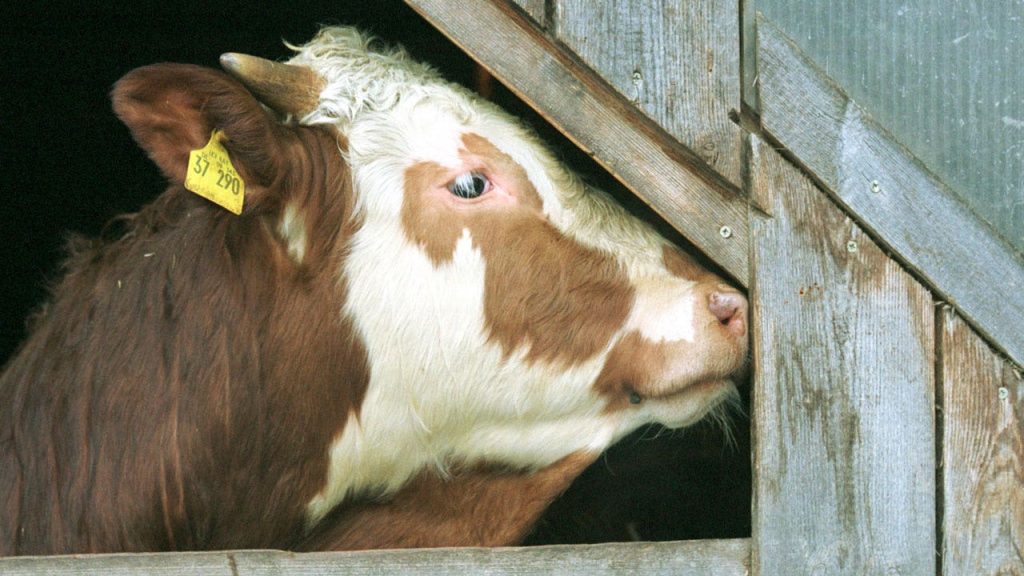The Scottish government recently confirmed a case of classical bovine spongiform encephalopathy (BSE), commonly known as mad cow disease, on a farm in southwest Scotland. This marks the first case of the disease in Britain in over two years. As a precautionary measure, movement restrictions have been imposed on affected premises and animals that have come into contact with the infected animal in Ayrshire. Despite this development, the government stressed that there is no risk to human health.
Investigations are currently underway to determine the origin of the disease at the farm. The Scottish government assured both farmers and the public that the risk associated with this isolated case is minimal. Chief Veterinary Officer Sheila Voas urged any concerned farmers to seek veterinary advice. BSE was initially detected in the late 1980s in Britain and eventually spread to other parts of Europe, causing considerable damage to cattle herds until the early 2000s. The disease has been associated with Creutzfeldt-Jakob disease, a brain-wasting condition in humans.
The confirmation of the BSE case in Scotland comes as a concerning development, especially given the potential risks associated with the disease. However, the government’s swift response and precautionary measures aim to contain the spread and ensure minimal impact on both animal and human health. The situation serves as a reminder of the importance of strict monitoring and control measures to prevent the resurgence of diseases like BSE, which have significant public health implications.
In a separate incident in Texas, the CDC issued a warning about raw milk contaminated with bird flu that resulted in the death of cats on a dairy farm. This serves as a reminder of the potential risks associated with consuming unpasteurized dairy products and the importance of following proper food safety precautions. Both cases highlight the need for vigilant monitoring and strict adherence to safety protocols to prevent the spread of diseases that can have serious consequences for both animals and humans.
The link between BSE and Creutzfeldt-Jakob disease underscores the potential dangers posed by animal diseases that can impact human health. The responsible handling and monitoring of livestock, along with effective disease surveillance systems, are vital in preventing the spread of such diseases. The Scottish government’s response to the BSE case demonstrates the importance of swift action and collaboration between authorities to address public health concerns and mitigate risks associated with such outbreaks.
Overall, the recent cases of BSE in Scotland and bird flu contamination in Texas serve as timely reminders of the ongoing risks associated with animal diseases and the importance of robust surveillance and control measures. By maintaining strict monitoring protocols and implementing appropriate safety measures, authorities can effectively manage potential disease outbreaks and protect both animal and human health. The collaboration between government agencies, veterinary professionals, and farmers is crucial in addressing and containing such incidents to ensure public safety and prevent the spread of diseases with serious health implications.













